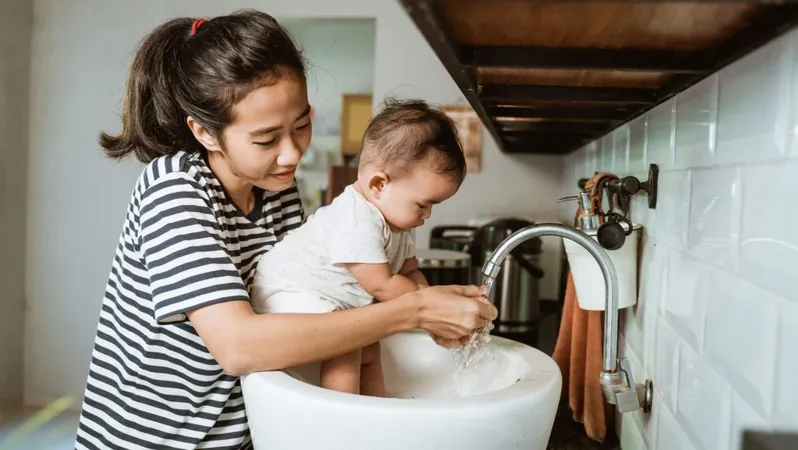
Family Beyond Blood: How Singaporean Employers Embrace Their Domestic Helpers
2024-10-01
Author: Arjun
Introduction
In Singapore, the relationship between employers and domestic workers, especially those from neighboring countries, transcends mere professionalism. Domestic helpers are often seen not just as employees but as vital members of the family unit, playing essential roles in the care of children and the elderly.
Heartfelt Stories
During a recent feature by CNA, three Filipina helpers shared their heartfelt stories, illustrating how long-standing relationships with families can develop into deep familial bonds. It’s common for these workers to be present for significant milestones in their employers' lives, often stepping into roles that can feel more like a second mother or sister to the children they care for.
Navigating the Transition
Initially, the transition for both the employer and helper can be awkward, as they navigate each other’s lifestyles and expectations. However, once trust is established—especially when families place their most vulnerable members in the helpers’ care—these relationships can flourish. Many employers have shared that it is not uncommon for them to take their helpers along on vacations or provide special treats as a token of appreciation for their hard work.
Economic Contributions
The benefits extend beyond the family they work for. Many domestic workers are able to send money back home to support their families, build houses, or afford education for their children, thus contributing to the financial stability of their communities.
A Sisterly Bond
One employer captured this sentiment perfectly when she stated, "My helper is like a sister to me and a second mom to my adult kids. When she first joined the family, my only request was that my kids be her top priority; housework was just a secondary concern."
Mutual Benefits
The overarching theme here is that viewing domestic helpers as extensions of the family can lead to mutual benefits, fostering a more compassionate society. As supported by insights from Ming En Liew in The Homegrown Asia, this approach can cultivate better living and working environments, benefiting both parties.
Expert Insights
Linda Seh, an expert in the employment sector with over 20 years of experience, echoed these sentiments. She noted that treating domestic helpers like family encourages open communication and enhances the quality of work. "A happy helper results in a harmonious home," she emphasized.
Conclusion
The consensus is clear: proper treatment and acknowledgment of domestic helpers as family fosters stronger bonds, resulting in happier households and sustainable work relationships. As Singapore continues to grow, the question remains—how can society further embrace this familial model to promote dignity and respect for all workers?





 Brasil (PT)
Brasil (PT)
 Canada (EN)
Canada (EN)
 Chile (ES)
Chile (ES)
 España (ES)
España (ES)
 France (FR)
France (FR)
 Hong Kong (EN)
Hong Kong (EN)
 Italia (IT)
Italia (IT)
 日本 (JA)
日本 (JA)
 Magyarország (HU)
Magyarország (HU)
 Norge (NO)
Norge (NO)
 Polska (PL)
Polska (PL)
 Schweiz (DE)
Schweiz (DE)
 Singapore (EN)
Singapore (EN)
 Sverige (SV)
Sverige (SV)
 Suomi (FI)
Suomi (FI)
 Türkiye (TR)
Türkiye (TR)